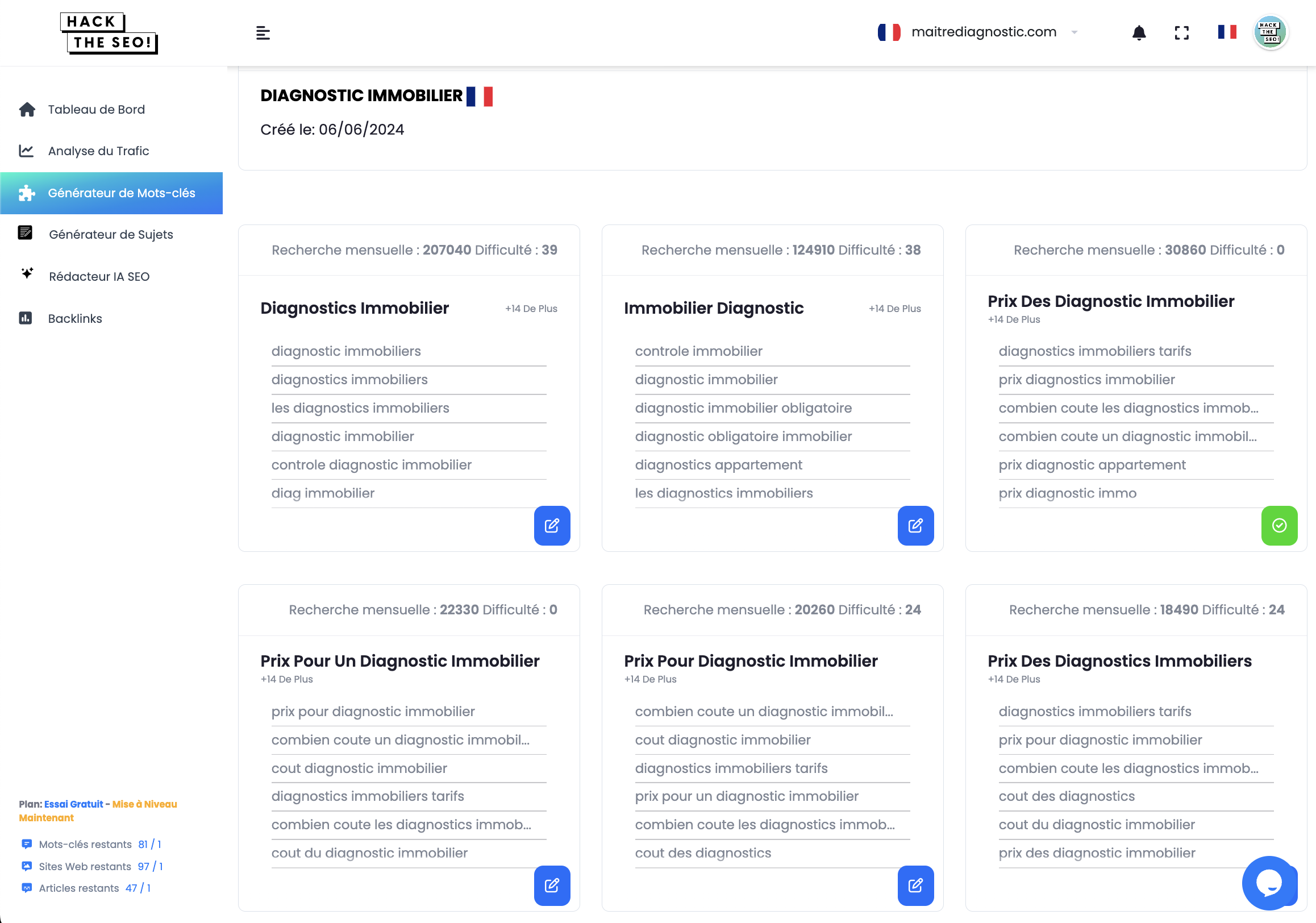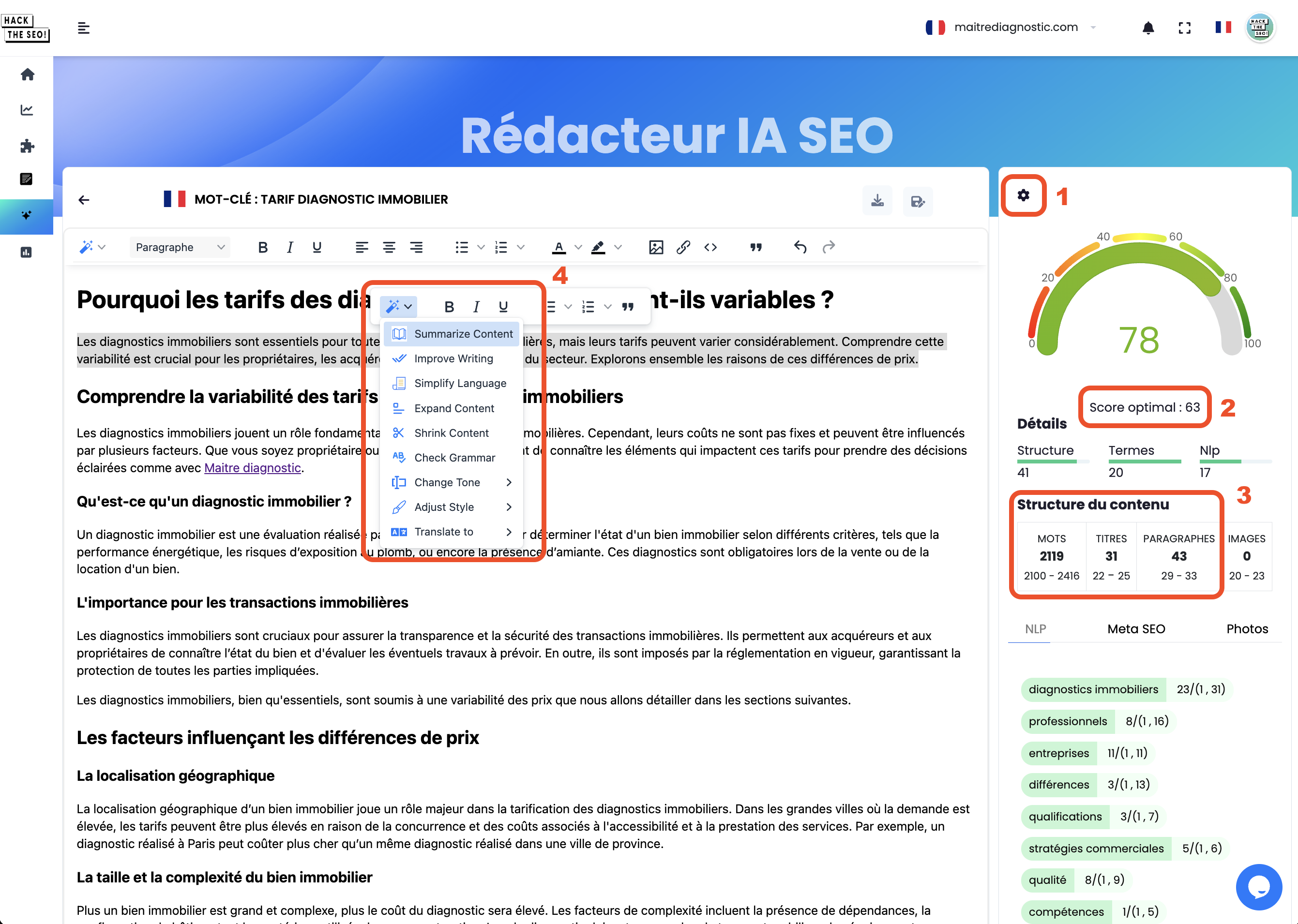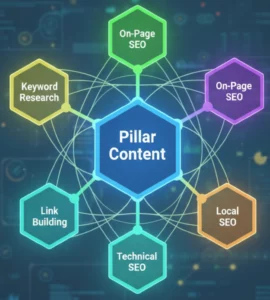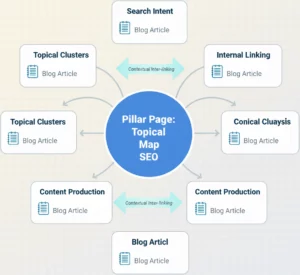
In the ever-evolving domain of technological tools, AI-assisted content creation has seen a major breakthrough with the development of the first AI Writers. This innovation has transformed document writing and opened new perspectives for content creators. But which company truly sparked this revolution ?
Table of Contents
ToggleThe Genesis of AI Writing Assistants
The birth of AI Writers can be traced back to the rise of artificial intelligence. Advances in Natural Language Processing (NLP) enabled the development of content generators capable of autonomously composing text. The magic of writing was no longer confined to humans but accessible through machines programmed to mimic human writing styles. Several companies contributed to this revolution, but one of the first to do so on a large scale is OpenAI, known for its GPT-3 model.
Pioneers in AI Writing
When it comes to pioneers, OpenAI stands out with GPT-3, a text generator that marked a significant turning point. Before it, companies like IBM with Watson and Google with its BERT also explored content generation capabilities. However, GPT-3 brought incredible accuracy and versatility to content writing, revolutionizing the industry.
The Rise of AI in Content Creation
With the release of GPT-3 by OpenAI, AI-powered content creation took a leap forward. This technology could generate articles, files, and even advertisements smoothly and coherently, often within seconds. This advancement had a significant impact on writing and marketing industries.
The First AI Writer and Its Impact on the Industry
GPT-3 marked a major turning point for content creators. With its advanced algorithms, it could produce text, social media captions, product descriptions, and documents with near-human quality. This changed the working conditions for authors and writers, allowing them to focus on more creative and strategic tasks.
How AI Technologies Transformed Content Writing
Innovations like GPT-3 freed writers from writer’s block. Simply providing prompts to AI could transform them into coherent and well-structured text within seconds. Tools like Canva Pro also use AI for design and photo editing, integrating high-quality templates and resources to facilitate the production of visual and textual content.
Features of Early AI Writers
Early AI Writers, like GPT-3, stand out with innovative features that have revolutionized content creation. They introduced groundbreaking tools for quickly and efficiently composing and customizing text.
Revolutionary Features in Text Composition
GPT-3 offers a variety of features such as generating content based on specific instructions, automatic grammar correction, and paragraph rewriting. This technology enables the production of high-quality content with impressive precision.
Personalization of Content through Artificial Intelligence
Another major advantage of AI Writers is personalization. Using sophisticated algorithms, these tools can adjust the style and tone of text according to user requirements. This level of customization is crucial for brands aiming to maintain a consistent voice across their content.

Overcoming Writer’s Block with AI Assistance
With AI Writers, authors no longer face a blank page. AI tools can generate content ideas, automatically structure files, and even propose suitable Canva designs. These capabilities are particularly useful during brainstorming and initial creation phases.
The advanced features of early AI Writers have thus played a crucial role in redefining content creation, making the process smoother and more personalized.
AI Writers and Accessibility of Content
One of the greatest contributions of AI Writers is increased accessibility to quality content. By enabling the creation of various types of text within seconds, these technologies have opened doors to new possibilities for creators.
Creating Quality Content in Seconds
AI Writers like GPT-3 can generate complete articles or simply product descriptions in seconds. This speed is a considerable asset for businesses needing large volumes of content regularly.
Production of Different Types of Texts: From Short to Long
Whether for advertisements, blog articles, social media captions, or detailed professional documents, AI Writers can handle it all. They can adapt to various formats, offering great flexibility.
Automatic Structuring and AI-assisted Brainstorming
AI excels in automatically structuring content. Tools like Canva Doc help organize ideas and structure documents coherently. Moreover, during brainstorming sessions, AI can suggest creative ideas, thereby facilitating the creation process.

The Evolution of AI Writers
Since the early days of GPT-3, AI Writers have evolved from basic text assistance to more complex and diversified functions. They continue to push the boundaries of what’s possible.
From Text Assistance to Multimedia Understanding
Today, AI Writers go beyond text generation to include multimedia content understanding, offering enriched interaction. Tools like Canva Pro combine photo editing features with writing capabilities to deliver comprehensive designs without the need for a specialist.
Towards Enhanced Editing and Rewriting Capabilities
Editing and rewriting capabilities of AI Writers have also improved. They detect grammar errors and suggest improvements to enhance the quality and clarity of text. Tools like Grammarly leverage this for comprehensive, automated text composition checks.
AI-powered Title and Summary Generation Tools
Furthermore, AI Writers include tools for generating catchy titles and clear, concise summaries. These features are essential for content creators aiming to capture and maintain audience attention.

Innovative Approaches in AI Writer Development
Researchers and developers continue to innovate in the field of AI Writers, adopting increasingly sophisticated approaches focused on performance, security, and collaboration.
Cutting-edge Performance and Sophisticated Reasoning Abilities
Latest AI Writer models like GPT-4 and Gemini achieve cutting-edge performance in content generation. They consider not just words but context and idea association to produce more coherent and relevant texts.
Responsibility and Security at the Core of AI Models
Companies like OpenAI prioritize responsibility and security. They implement measures to avoid biases and inappropriate content, ensuring that creations adhere to ethical and legal standards. User data security is also strengthened.
Promising Expanded Collaboration and Increased Accessibility
Finally, these technologies promise closer collaboration between humans and machines. They make AI accessible to a wider audience, even benefiting educators and professional teams by advancing their daily work.
Integration of AI in Productivity Tools
AI Writers now extend beyond content creation to integrate into broader productivity tools, offering specialized and general solutions. This facilitates collaboration and enhances team cohesion.
From General Applications to Specialized Solutions
Platforms like Canva Pro and Canva Doc integrate AI to create Canva designs, generate magic writing text, and facilitate writing. These tools have become valuable allies for all types of productions, from simple graphics to complex documents.
Visit our Hack The Seo tool to test cutting-edge writing tools.

Facilitating Team Cohesion and Content Sharing
AI also aids team cohesion by simplifying content sharing and fostering seamless collaboration. Collaborative tools enable real-time project collaboration, optimizing productivity.
Security and Customization: Addressing Major Challenges
Security and customization are central to AI developments. Recent models ensure that content meets security requirements while allowing extensive customization to meet specific user needs.
The Future of AI-Assisted Writing
AI-assisted writing continues to evolve, paving the way for new innovations and challenges for content creators. Advanced models like Gemini promise to further revolutionize this field.
Towards a New Era of Innovation with Gemini and Other Models
Future models, such as Gemini, go beyond text generation to explore multimedia understanding and integration. These innovations promise to make AI even more useful in various contexts, from content writing to complex multimedia design.
Impact on Writing Professions and Beyond
The impact of AI Writers extends beyond writing to influence other creative professions by aiding in the generation of visual and textual content, thereby facilitating the work of designers, marketers, and internal communicators.
Challenges and Opportunities of AI for Content Creators
However, the emergence of AI in writing also presents challenges, particularly in terms of responsibility and ethics. Content creators must learn to collaborate with these tools while maintaining the integrity and quality of their productions.
The future of AI-assisted writing is promising but requires ongoing reflection on its applications and implications, always keeping in mind the balance between innovation and responsibility.
Have you used an AI Writer in your content creation process ? Share your thoughts and experiences in the comments below, and let’s discuss the future trends of this revolutionary technology.

Eric Ibanez
Co-fondateur de Hack The SEO
Eric Ibanez a créé Hack The SEO et accompagne des stratégies SEO orientées croissance. Il est aussi co-auteur du livre SEO pour booster sa croissance, publié chez Dunod.
Suggested Articles




